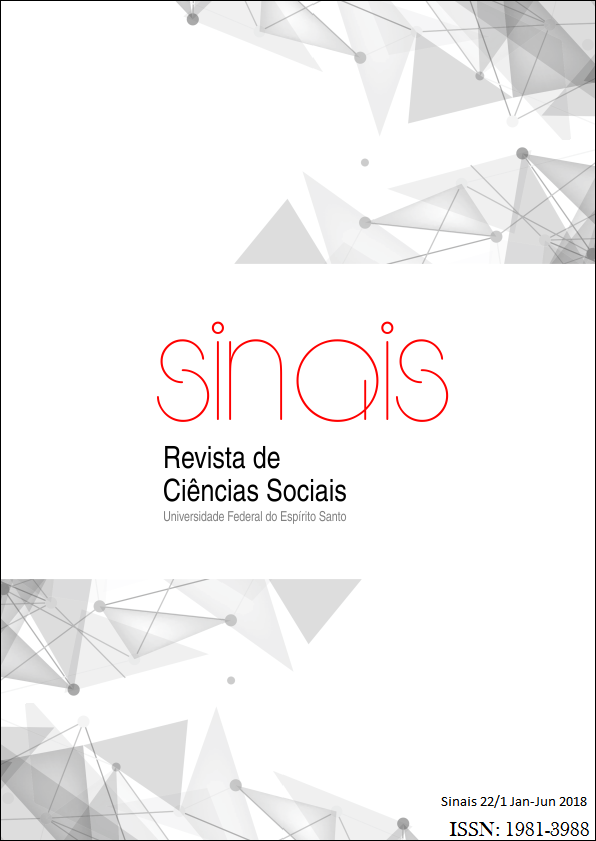A sociologia de Bernard Lahire e suas críticas à sociologia de Pierre Bourdieu
DOI:
https://doi.org/10.25067/s.v22i1.18654Resumo
Como os indivíduos incorporam o social é uma das questões mais antigas na sociologia. Das contribuições acerca dessa questão a de Pierre Bourdieu possui notoriedade. Suas teorias, como a da prática, dos capitais, do habitus e dos campos sociais se tornaram fundamentais para qualquer pesquisador em ciências sociais. Mas nosso foco aqui é outro sociólogo francês: Bernard Lahire. A sociologia disposicionalista e contextual de Lahire tem seu foco em como os indivíduos mobilizam seus patrimônios de disposições (de esquemas de ação) conforme a pluralidade de contextos (que servem como molas da ação). Trata-se de uma profunda reflexão sobre o que muitos cientistas sociais tratam como um dado: a apreensão individual do mundo social. Ele também nos apresenta uma proposta programática, a sociologia à escala individual, que não objetiva ser exclusiva, mas busca metodologias mais eficazes para captar a pluralidade das lógicas da ação. Neste artigo discutimos não apenas a sociologia disposicionalista e a proposta programática de Bernard Lahire, mas nos detemos com especial atenção em como esse sociólogo mobiliza criticamente os aparatos teóricos e conceituais elaborados por Pierre Bourdieu.
Palavras-Chave: Pierre Bourdieu, sociologia disposicionalista, ator plural.
The question of how individuals incorporate the social is one of the oldest issues in sociology. Pierre Bourdieu’s contributions to this question are notorius. His theories, such as practice, of the capitals, the habitus, and the social fields, have become fundamental to any researcher in the social sciences. But our focus here is on another french sociologist: Bernard Lahire. Lahire's dispositionalist and contextual sociology focuses on how individuals mobilize their dispositions (of schemes of action) according to the plurality of contexts (which act as springs of action). It is a profound reflection on what many social scientists treat as a given: the individual apprehension of the social world. He also presents a programmatic proposal, sociology at the individual level, which does not aim to be exclusive, but seeks more effective methodologies to capture the plurality of the logics of action. In this article we discuss not only the dispositionalist sociology and the programmatic proposition of Bernard Lahire, but we hold with special attention on how this sociologist mobilizes the theoretical and conceptual apparatuses elaborated by Pierre Bourdieu.
Keywords: Bernard Lahire, Pierre Bourdieu, dispositionalist sociology, plurel actor.
Downloads
Downloads
Publicado
Edição
Seção
Licença
Autores que publicam nesta revista concordam com os seguintes termos:
- Autores mantém os direitos autorais e concedem à revista o direito de primeira publicação, com o trabalho simultaneamente licenciado sob a Licença Creative Commons Attribution que permite o compartilhamento do trabalho com reconhecimento da autoria e publicação inicial nesta revista.
- Autores têm autorização para assumir contratos adicionais separadamente, para distribuição não-exclusiva da versão do trabalho publicada nesta revista (ex.: publicar em repositório institucional ou como capítulo de livro), com reconhecimento de autoria e publicação inicial nesta revista.
- Autores têm permissão e são estimulados a publicar e distribuir seu trabalho online (ex.: em repositórios institucionais ou na sua página pessoal) a qualquer ponto antes ou durante o processo editorial, já que isso pode gerar alterações produtivas, bem como aumentar o impacto e a citação do trabalho publicado (Veja O Efeito do Acesso Livre).


